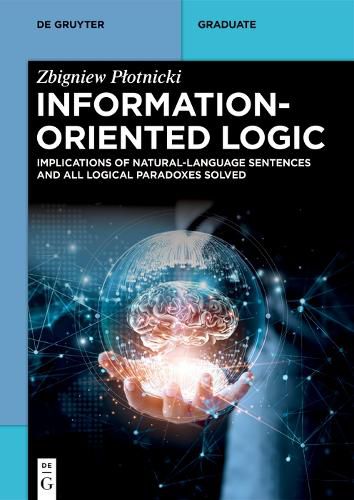Readings Newsletter
Become a Readings Member to make your shopping experience even easier.
Sign in or sign up for free!
You’re not far away from qualifying for FREE standard shipping within Australia
You’ve qualified for FREE standard shipping within Australia
The cart is loading…






The book introduces a new form of mathematical logic called "Information Oriented Logic" (IOL). It demonstrates that IOL is capable of solving various classical and non-classical logic problems that cannot be solved by traditional methods of logic. In this book, it is argued that two meaningful declarative sentences or symbols can make the same statement if they express the same thing or referent in different ways. The book treats a piece of information as the referent for a meaningful declarative sentence, thus inventing information-oriented logic. As a result, this book provides a comprehensive guide to this logic. Unlike traditional logic, which uses declarative sentences as the result of logical expressions, this new logic uses pieces of information. The book is intended for undergraduate and graduate students, as well as scholars applying mathematical logic to various fields such as philosophy, linguistics, ontology, information theory, computer science, etc. Additionally, it provides a new mereology in which all implications of a piece of information are its parts.
$9.00 standard shipping within Australia
FREE standard shipping within Australia for orders over $100.00
Express & International shipping calculated at checkout
The book introduces a new form of mathematical logic called "Information Oriented Logic" (IOL). It demonstrates that IOL is capable of solving various classical and non-classical logic problems that cannot be solved by traditional methods of logic. In this book, it is argued that two meaningful declarative sentences or symbols can make the same statement if they express the same thing or referent in different ways. The book treats a piece of information as the referent for a meaningful declarative sentence, thus inventing information-oriented logic. As a result, this book provides a comprehensive guide to this logic. Unlike traditional logic, which uses declarative sentences as the result of logical expressions, this new logic uses pieces of information. The book is intended for undergraduate and graduate students, as well as scholars applying mathematical logic to various fields such as philosophy, linguistics, ontology, information theory, computer science, etc. Additionally, it provides a new mereology in which all implications of a piece of information are its parts.